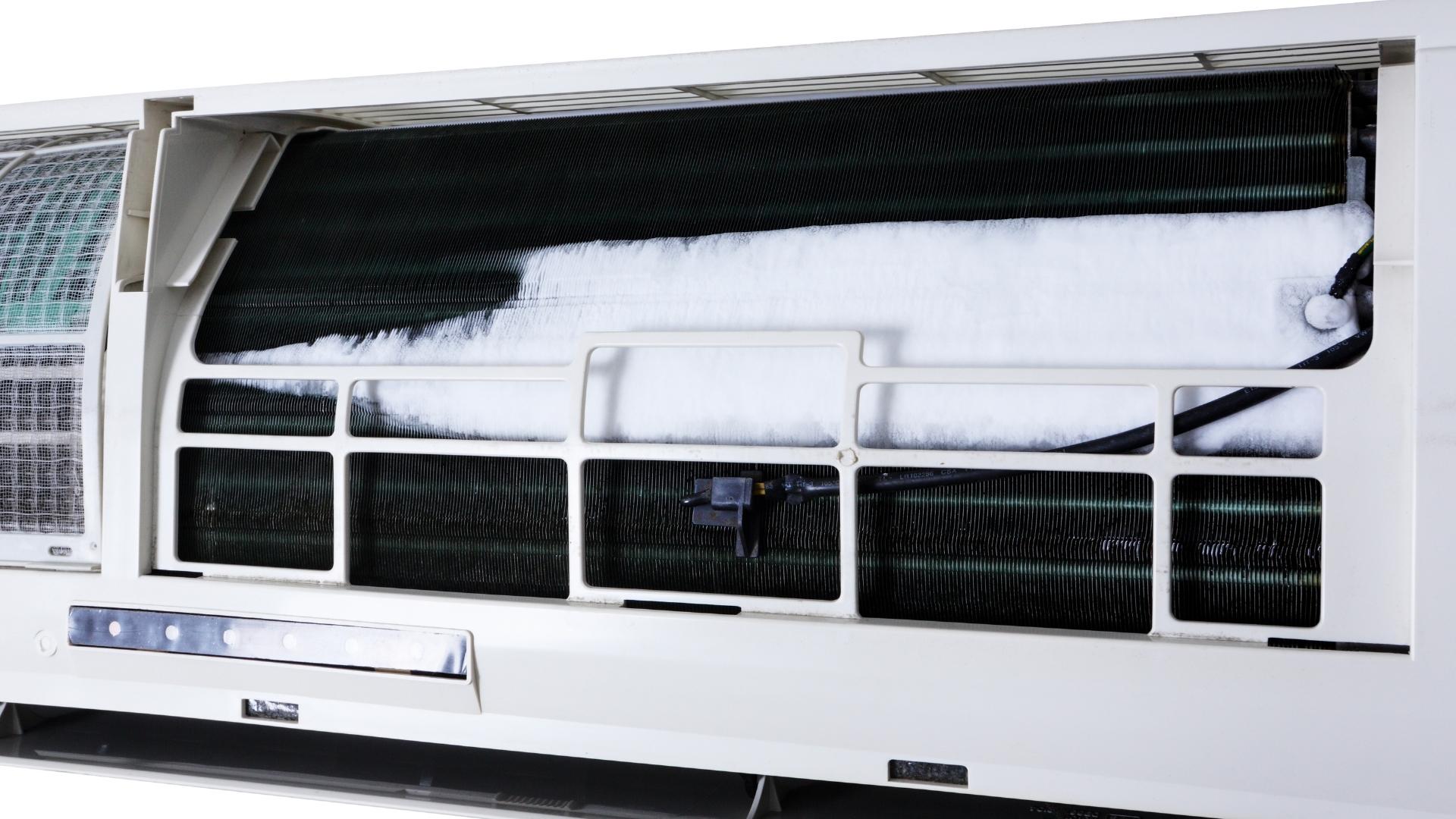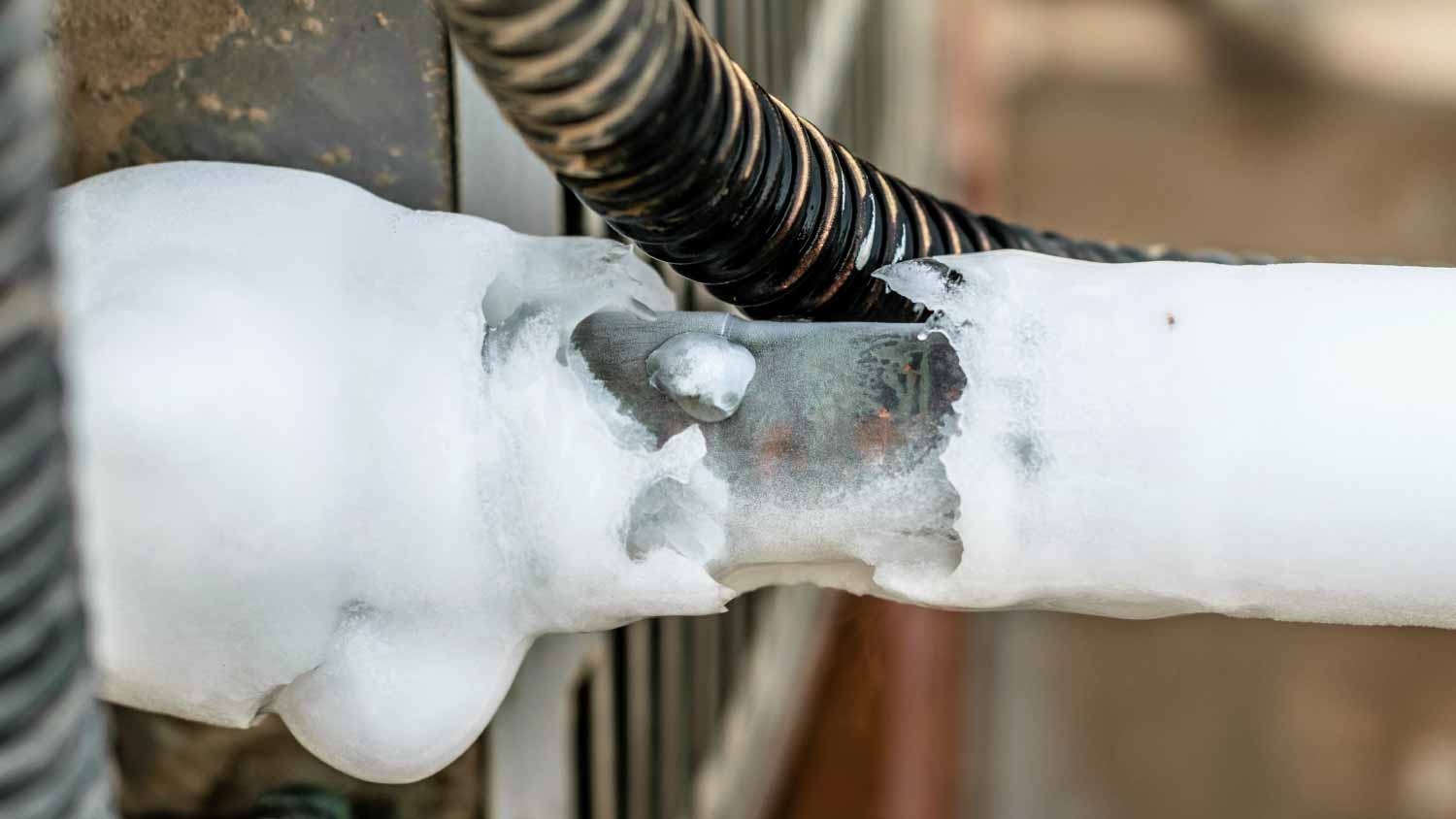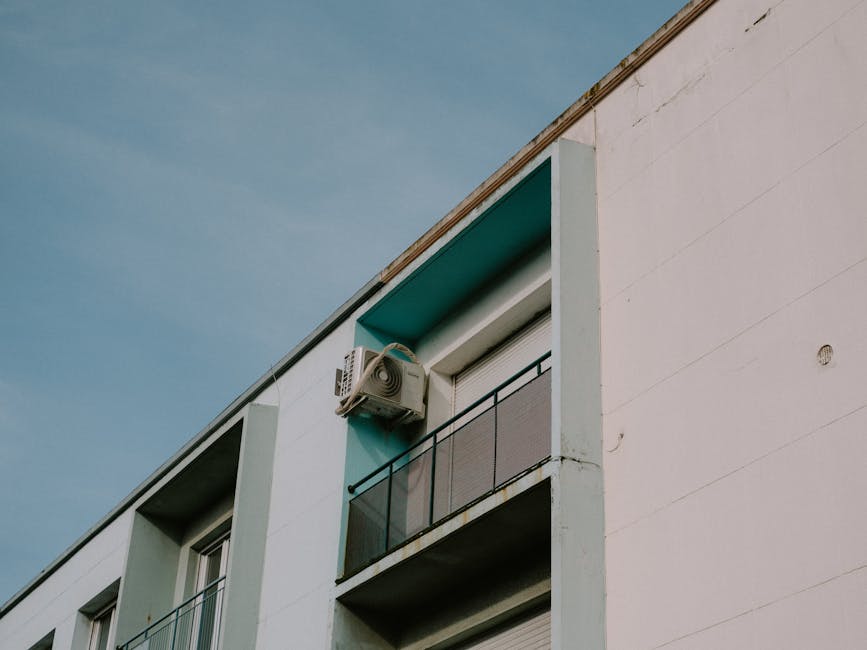Have you ever noticed your air conditioner looking like it’s covered in ice? It’s not just strange—it can be a serious problem.
When your air conditioner freezes up, it stops working properly and leaves your home uncomfortable. You might wonder why this happens and what you can do to fix it before the heat kicks in full force. Keep reading, because understanding why your air conditioner freezes can save you time, money, and a lot of frustration.
Let’s dive into the real reasons behind this chilly issue.
Common Causes Of Ac Freezing
An air conditioner freezing up is a common problem that can stop it from cooling your home. Understanding why this happens can help you fix it faster.
Several issues can cause your AC to freeze. These include problems with refrigerant, filters, airflow, and the thermostat.
Low Refrigerant Levels
Refrigerant is the liquid that cools the air inside your AC. If there is not enough refrigerant, the pressure drops inside the system. This drop causes the coils to get too cold, which leads to freezing.
Dirty Air Filters
Air filters catch dust and dirt from the air. When these filters get dirty, they block airflow. This makes the AC work harder and causes the evaporator coil to freeze.
- Check air filters every month during heavy use
- Replace or clean filters if they look clogged
- Use high-quality filters for better air cleaning
Blocked Airflow
| Cause | Effect on Airflow | Result |
| Closed or blocked vents | Reduces air movement | Coils freeze due to low temperature |
| Dirty blower fan | Weak air circulation | Cold spots form on coils |
| Damaged ductwork | Leaks or blockages | Uneven cooling and freezing |
Thermostat Issues
When the thermostat is set too low or is faulty, the AC runs too long. This causes the temperature inside the unit to drop too much. As a result, the coils freeze up.
Fixing thermostat problems can stop your AC from freezing and save energy.
Effects Of A Frozen Air Conditioner
A frozen air conditioner can cause many problems in your home. Ice buildup on the unit stops it from working well. This affects the air conditioner’s ability to cool your room.
Understanding the effects helps you spot issues early. Fixing a frozen AC quickly can save money and prevent damage.
Reduced Cooling Efficiency
Ice blocks the airflow over the AC coils. This reduces the unit’s cooling power. The air coming out will not be as cold as before.
- Air does not flow freely through frozen coils.
- The evaporator cannot absorb heat properly.
- The room takes longer to reach the desired temperature.
- Humidity inside the room may increase.
Potential Compressor Damage
The compressor works harder when the AC freezes. This strain can cause it to fail over time. Repairing or replacing the compressor is costly and inconvenient.
| Issue | Cause | Effect |
| Frozen Coils | Low refrigerant or poor airflow | Compressor overload |
| Compressor Strain | Ice blocks heat transfer | Possible breakdown or damage |
| System Shutdown | Safety controls activate | Cooling stops completely |
Increased Energy Consumption
A frozen air conditioner uses more electricity. The unit runs longer to try to cool your space. This wastes energy and raises your bills.
- Longer run times due to poor cooling
- Compressor working under strain
- Fans running at higher speeds
- Frequent restarts if the system shuts down
How Refrigerant Levels Impact Freezing
Air conditioners cool your home by moving heat outside. The refrigerant inside the system helps this process. If refrigerant levels drop, the AC can freeze up.
Low refrigerant causes the coils to get too cold. This leads to ice buildup and poor cooling performance.
Leaks And Their Consequences
Leaks lower the amount of refrigerant in the system. This makes the AC work harder and freeze more often. Leaks also let moisture in, which adds to ice formation.
- Reduces cooling efficiency
- Increases energy consumption
- Causes compressor damage
- Leads to ice buildup on coils
Signs Of Low Refrigerant
Knowing the signs can help you fix low refrigerant early. Check for these issues to prevent freezing problems.
| Sign | Description |
| Warm air | AC blows air that is not cold enough |
| Ice on coils | Visible frost or ice on indoor unit |
| Hissing sound | Noise from refrigerant leak |
| High energy bills | More power used due to inefficiency |
Role Of Airflow In Preventing Freeze-ups
Air conditioners can freeze up when airflow is weak or blocked. Good airflow helps the system work properly. It stops ice from forming on the coils.
When air flows well, the coils stay warm enough to avoid freezing. Poor airflow causes cold spots and ice buildup. This can damage the air conditioner.
Importance Of Clean Filters
Dirty filters block air from moving through the system. This lowers airflow and causes the coils to get too cold. Ice can form quickly on frozen coils.
Cleaning or replacing filters regularly keeps air flowing freely. This helps the air conditioner run smoothly and prevents freeze-ups.
Checking Vents And Ducts
Blocked or closed vents reduce airflow in rooms. Dust and debris in ducts also slow down air movement. These problems cause uneven cooling and ice buildup.
Make sure vents are open and ducts are clean. This keeps air moving well and stops the air conditioner from freezing up.
Thermostat Settings And Ac Performance
An air conditioner can freeze up if its thermostat settings are not correct. The thermostat controls the temperature and how well the AC works. Bad settings can cause the AC to cool too much.
This freezing problem stops the AC from cooling properly and can damage the system. Understanding thermostat settings helps prevent this issue and keeps your AC running smoothly.
Incorrect Temperature Settings
Setting the temperature too low can cause the air conditioner to freeze up. The system works hard to reach the cold setting. This makes the coils too cold, leading to ice build-up.
- Setting the temperature below 70°F can cause freezing.
- Running the AC continuously without breaks increases freeze risk.
- Ignoring recommended temperature ranges harms AC performance.
- Incorrect fan speed settings affect airflow and cooling.
Faulty Thermostat Sensors
Thermostat sensors detect room temperature and tell the AC when to turn on or off. If the sensors are faulty, the AC may run too long or not enough. This can cause freezing or poor cooling.
| Sensor Issue | Effect on AC |
| Loose sensor | Wrong temperature reading, AC runs too long |
| Broken sensor | AC may not start or stop properly |
| Misplaced sensor | False temperature reading causes freezing |

Credit: www.advantageairtech.com
Maintenance Tips To Avoid Freezing
An air conditioner can freeze up if it is not well maintained. Regular care helps your AC work properly and stops ice build-up. This guide covers key maintenance tips to keep your unit from freezing.
Simple steps like changing filters and keeping vents clear will improve your AC’s performance. You can also avoid costly repairs by scheduling professional checks.
Regular Filter Replacement
Dirty filters block airflow and make your AC work harder. This causes the coils to get too cold and freeze. Changing filters often keeps air flowing freely.
- Check filters every month during heavy use
- Replace filters every 1 to 3 months
- Use the correct filter size for your unit
- Choose filters with proper airflow ratings
Professional Ac Inspections
Experts can spot problems before they cause freezing. They clean parts, check refrigerant levels, and test airflow. Regular inspections keep your AC running smoothly.
| Service | What It Includes | Frequency |
|---|---|---|
| Cleaning Coils | Removes dirt and debris | Once a year |
| Refrigerant Check | Ensures proper levels to avoid freezing | Once a year |
| Airflow Test | Measures vent air volume | Once a year |
| System Inspection | Overall system health check | Once a year |
Keeping Vents Unobstructed
Blocked vents reduce airflow and cause cold spots that freeze. Keep vents open and clean. Move furniture or curtains away to allow air to flow well.
Tips to keep vents clear:
- Remove dust and debris regularly
- Do not cover vents with clothes or papers
- Check for pets or objects blocking vents
- Make sure vents are fully open
When To Call A Professional
If your air conditioner freezes up, it might need expert help. Some problems look simple but need a trained eye. Knowing when to call a professional can save you time and money.
This guide helps you spot serious issues and avoid risks from fixing it yourself.
Identifying Serious Problems
Some signs mean the AC problem is more than just a quick fix. Look for these to know if you need a pro:
- The AC freezes up often, even after you defrost it.
- There is a strange smell or loud noise from the unit.
- The airflow is very weak or stops completely.
- Your electric bills suddenly go up without more use.
- Water leaks around the indoor or outdoor unit.
- Thermostat does not respond or shows wrong readings.
These problems may mean a refrigerant leak, dirty coils, or a failing compressor. A professional can check and fix these safely.
Avoiding Diy Risks
Fixing an AC that is freezing can seem easy but has risks. Doing it yourself may cause more damage or harm.
| DIY Risk | Possible Issue | Why Call a Pro |
| Handling Refrigerant | Leaks or Low Levels | Requires special tools and licenses |
| Cleaning Coils | Damage or Electric Shock | Need safe equipment and knowledge |
| Checking Electrical Parts | Wrong Wiring or Short Circuits | Can cause fire or unit failure |
| Ignoring Symptoms | Worsening Damage | Pro can diagnose hidden issues |
Calling a professional keeps you safe and ensures your AC works well again.

Credit: www.thervgeeks.com

Credit: www.angi.com
Frequently Asked Questions
Why Does My Air Conditioner Freeze Up?
Air conditioners freeze up due to restricted airflow or low refrigerant. Dirty filters or blocked vents reduce air movement. Low refrigerant causes coil temperatures to drop, leading to ice buildup. Regular maintenance prevents freezing and keeps the system efficient.
How Does Low Refrigerant Cause Freezing?
Low refrigerant lowers pressure inside the coils. This drops coil temperature below freezing. Moisture in the air freezes on the coil, causing ice formation. Recharging refrigerant and fixing leaks solve this issue.
Can Dirty Filters Cause Ac Freezing?
Yes, dirty filters block airflow, causing coils to get too cold. Without enough warm air passing, moisture freezes on the coils. Changing filters regularly helps prevent freezing and improves air quality.
What Happens If Ac Freezes Too Long?
If an AC freezes for long, it can damage the compressor. Ice blocks airflow, reducing cooling efficiency. Continued operation with ice can cause costly repairs. Turn off the unit and thaw ice before restarting.
Conclusion
Air conditioners freeze up mainly due to airflow or refrigerant issues. Dirty filters or blocked vents stop air from moving well. Low refrigerant levels cause the coils to get too cold. Regular cleaning and maintenance keep your AC running smoothly.
Fixing small problems early prevents bigger, costly repairs later. Stay aware of how your AC feels and sounds. Quick action helps you stay cool without interruption. Simple care makes your air conditioner last longer. Keep your home comfortable all year round.
